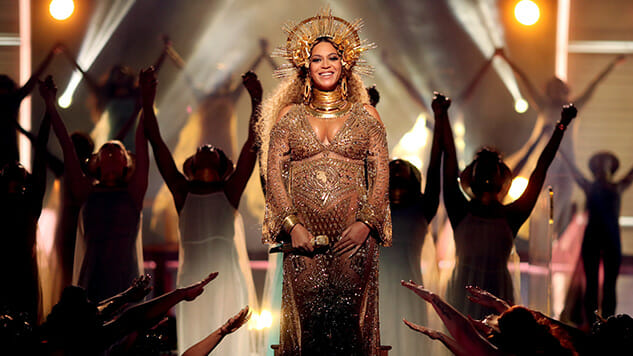New Study Shows a Lack of Female Representation in Music
Photos by Christopher Polk/Getty, Frederick M. Brown/Getty
A new study published on Friday revealed how underrepresented women are in the music industry.
For over the decade, Dr. Stacy L. Smith, Dr. Katherine Pieper and Marc Choueiti analyzed women’s presence in the music business, both in front of and behind-the-scenes. In the study titled “Inclusion in the Recording Studio?” the group, through the Annenberg Inclusion Initiative, found that out of 600 songs played on the radio, downloaded or streamed women only counted for 16.8 percent of the artists accounted for. That was a six-year low for female artists. For groups and duos, the numbers were even worse as they only counted for 8.7 percent and 5.1 percent, respectively.
While being the one on stage can be hard, being on the studio side was no picnic either. Working female songwriters only accounted for 11.4 percent—compared to their male counterparts at 88.6 percent—when it came to music consumption in 2017. That was a drop from female-written songs making up 13.3 percent in 2016, which is still small in comparison to male-written songs. It was even worse for working female producers who only make up two percent of music produced while male producers get the lion’s share of the work and credit. Women of color and ethnicities have it the worst as they only represent two out of 651 working music producers.
Rap legend Missy Elliott added her two cents on the issue on Twitter:
-

-

-

-

-

-

-

-

-

-

-

-

-

-

-

-

-

-

-

-

-

-

-

-

-

-

-

-

-

-

-

-

-

-

-

-

-

-

-

-








































